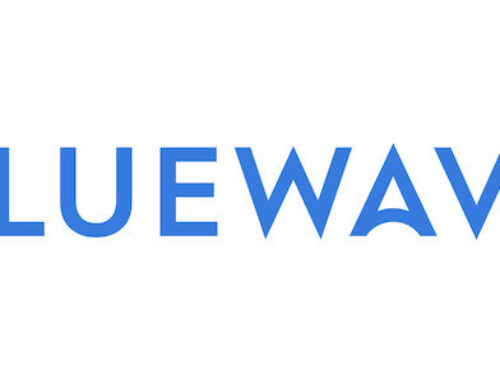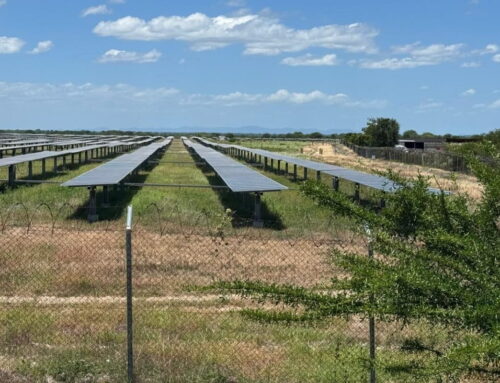One North Carolina company’s plan for keeping rooftop solar going
November 6, 2025

A longstanding federal tax credit for rooftop solar is about to expire, making it more expensive for homeowners to access cheap, clean energy — and sowing uncertainty for the companies that put photovoltaic panels up on roofs.
But a small Durham, North Carolina, company called EnerWealth Solutions sees a path forward — at least for the next two years. Its model is to buy rooftop solar panels with a tax credit still available to commercial entities and rent them to homeowners, passing along the savings.
It’s an approach that firms around the country can adopt as the beleaguered rooftop solar sector tries to weather the Trump administration’s assault on clean energy.
The leasing strategy could be particularly useful in places like North Carolina, where a robust solar industry has taken root but state policy support for home rooftop panels is waning. In early 2023, funding dried up for a popular rooftop solar rebate program run by Duke Energy, the state’s predominant electric utility. Later that year, Duke began lowering bill credits for customers who send their solar power back to the grid.
A sunny state of 11 million people, North Carolina is a leader on utility-scale solar but middling when it comes to residential solar adoption. Just over 55,000 homes are now equipped with rooftop panels, according to the U.S. Energy Information Administration, so the industry has ample room to grow.
“It’s so imperative that we’re opening every avenue to get these technologies into the hands of as many North Carolinians as possible,” said Matt Abele, executive director of the North Carolina Sustainable Energy Association, an advocacy group.
EnerWealth’s first residential leasing customer is one of the industry’s own. A certified public accountant and financial consultant for solar firms, Casey Gilley said installing an array on his Chapel Hill home is something of an unspoken requirement. “You can’t work in the business and not have solar,” he said. “Right?”
While his profession may not be entirely typical, Gilley is an average Tar Heel in other ways. He’s trying to do his part to reduce pollution and save energy. He wants to guard against coming electricity-rate increases. And forking over a down payment on a full-price solar array for his family of five was a no-go.
Plenty of people EnerWealth aims to serve fit that profile, says Brian Liechti, director of solar leasing. That’s why, until the end of 2027, when companies like his can no longer access the tax credit, the goal is simple: “Make hay and electrons while the sun shines,” he said.
Silver linings for an embattled industry
Veterans of the solar industry say they’re used to the ebb and flow of policies designed to encourage homeowners to go solar. But there’s no doubt that they’ve had an especially hard year.
Most crushing was the passage of the One Big Beautiful Bill Act by President Donald Trump and the Republican-controlled Congress in July. The law eliminates the 30% tax credit for home solar at the end of this year, nearly a decade sooner than it was previously set to expire. The change is pushing sales to new heights, but a crash is expected once the incentive is gone in 2026.
The White House also clawed back $7 billion in grants intended to help low-income households go solar, including a $156 million initiative projected to benefit 12,000 families across North Carolina. The state’s Attorney General Jeff Jackson is among 23 attorneys general around the country suing the Trump administration for terminating the program, calling the move illegal.
The policy whiplash comes amid a difficult macroeconomic environment for rooftop solar. High interest rates and inflation have lingered for years, dampening interest in the sector among those without the cash to buy a solar array outright.
Despite these woes, North Carolina installers see a few bright spots.
For one, a Duke trial program called PowerPair, in which customers receive a rebate of up to $9,000 for investing in a battery along with a solar array, has seen thousands of enrollees since its launch in the spring of last year. The pilot has reached its limit in the company’s eastern and far western territory but still has room in the central part of the state.
What’s more, a 2017 state law creates a small crack in Duke’s monopoly. While agreements between homeowners and non-utilities for the purchase of electricity are forbidden as ever, the statute allows individuals to rent the use of solar equipment up to a certain cap. This provision has been little-used to date in the residential sector but is a cornerstone of the EnerWealth model.
Then, there’s a final puzzle piece for the company: the pro-solar policy that escaped the purge in the One Big Beautiful Bill Act. While incentives for individuals dry up Dec. 31, commercial entities can receive at least a 30% credit for investing in renewable energy through the end of 2027.
EnerWealth, then, can keep buying rooftop solar panels for another two-plus years, benefit from the credit, and then pass on some of the savings to its lessees. For now, the company doesn’t have to fear hitting the Duke solar leasing cap established in 2017. And customers who can cash in on the PowerPair battery incentive while it still lasts will see even more savings.
“One tool in the toolbox”
These federal and state incentives can come together to produce savings for North Carolinians, even in a tough time for rooftop solar.
Though Gilley might conceivably have borrowed money and installed his panels in time to use the expiring tax credit, he chose the EnerWealth lease model instead.
“I ran the numbers of ownership versus lease, and they were very similar,” he said. But what ultimately tipped the scales toward the latter was that it didn’t require a down payment or any ongoing costs. “I didn’t have to come up with any cash,” he said. “Also, I don’t have to worry about any maintenance or any problems for the next 25 years.”
PowerPair is still available in Gilley’s area, so he used the $9,000 rebate as a down payment on the battery and the solar system. He receives net-metering bill credits and still pays Duke for electricity — but about $210 less per month than before. Even with his $150 monthly payment to EnerWealth, Gilley is saving about $60 a month.
His rental payment for the equipment will step up 1.5% each year. “But electricity prices are going to escalate at a much higher pace than that,” he predicted. “So, my annual savings will only grow.”
When the residential tax credit expires in two months, homeowners who want to go solar will have an even easier choice to make: Finance their equipment over time at roughly 7% interest rates or rent it for about 25% less per year, thanks to passthrough savings from the tax credits.
According to EnerWealth calculations, the lower lease payments on a $35,000 battery and solar array mean customers will save nearly $15,000 in overall electricity costs over 20 years. Even those who can pay for a system outright might choose a rental option: It’s cheaper because the lessor gets the government incentive.
“A lease is the only way to monetize the tax credit for residential systems,” EnerWealth’s Liechti said.
Meanwhile, in terms of customer experience, there’s little difference between renting and owning the panels and battery. Homeowners have a buyout option beginning in year seven. If they move, they can purchase the equipment and include the expense in the home’s sale price, or transfer the lease — and monthly bill savings — to the new owners.
While EnerWealth is breaking ground in the solar leasing market in North Carolina, other companies are sure to follow, said Scott Alexander, chief strategy officer for the company.
“We’re just one tool in the toolbox,” he said.
The EnerWealth model does have its limits. It’s only available in Duke territory, which covers most but not all of the state. It’s also much more attractive with the PowerPair rebate, which is soon to dry up and faces an uncertain future after that.
Most of all, the leasing economics will get a lot less appealing in two years, when the 30% tax credit runs out for commercial entities, too.
After that, Alexander said, “we have to innovate. We have to pivot. No business lasts forever. We’ve got two years.”
{
if ($event.target.classList.contains(‘hs-richtext’)) {
if ($event.target.textContent === ‘+ more options’) {
$event.target.remove();
open = true;
}
}
}”
>
Elizabeth Ouzts
is a contributing reporter at Canary Media who covers North Carolina and Virginia.
read next
Search
RECENT PRESS RELEASES
Related Post




